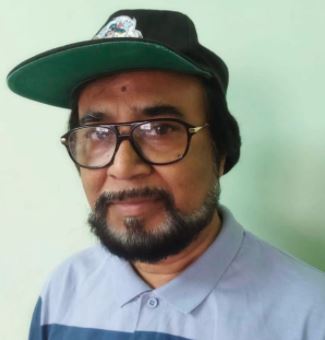Meet: Nikhil R. Pal, Chair of the IEEE CIS History Committee.

What is your title, and place of work? (or Technical Field of Research)?
I am a professor at the Electronics and Communication Sciences Unit and also the Head of the Centre for Artificial Intelligence and Machine Learning, Indian Statistical Institute, Calcutta.
How long have you been a member of CIS and what was the reason you chose to join IEEE CIS?
I do not remember exactly when I joined CIS, but it has been for many years. I have been an IEEE member for 32 years. Most likely I joined CIS at its inception or very close to that. I became interested in fuzzy sets and neural networks in the late eighties and within a short time I fell in love with them. Soon I realized that CIS is my professional home within the IEEE family.
What Computational Intelligence society committee do you serve?
At present, I am serving as the Chair of the CIS History Committee and as a member on the CIS Fellow Committee. In the past, I served on many committees of CIS. I served as an elected member of the CIS Administrative Committee (AdCom) during 2010-2012 and then as the Vice President for Publications (2013-2016), I served on both CIS Executive Committee (ExCom) and AdCom. As the President-Elect (2017), President (2018-2019), and the Past President (2020), I continued to serve on both AdCom and ExCom for four more years. During this long journey, I was involved in many other committees of CIS including Fuzzy Systems Technical Committee, Nominations Committee, and Steering Committees of some CIS Co-sponsored publications. Apart from these, I have been very actively engaged in organizing CIS conferences and related activities.
What have you learned from your experience and how has it helped you professionally?
My association with CIS has been very enriching and rewarding professionally and beyond. CIS has given me opportunities to serve the scientific community in many ways beginning from a reviewer to an Associate editor of the IEEE Transactions on Fuzzy Systems to its Editor-in-Chief followed by the Vice President for Publications of CIS. This gave me a unique opportunity to learn every aspect of publications. I got the freedom to directly interact and learn from young researchers, top leaders in computational intelligence, as well as, from practitioners. CIS gave me ample opportunities to sharpen my skill in organizing events including conferences. Overall, CIS helped to make myself a more complete person.
What has been the most fun/rewarding thing about being a volunteer for the IEEE Computational Intelligence Society? What have you enjoyed the most?
The most fun and enjoyable part is the interaction with the CIS community, particularly with the volunteers. In our meetings, we argue on issues, sometimes we disagree or agree to disagree on issues, but once the meetings are over, we are again great friends. They are always there to stand by me in my crisis irrespective of whether it is a CIS one or a personal one. Without such nice people around, I could not have continued as an active volunteer of CIS for such a log time. Being a CIS volunteer, I am blessed with a fantastic set of friends.
Tell us something about you that we don’t know.
Most people “tag” me a “fuzzy researcher” but my living comes equally both from fuzzy sets and neural networks – interestingly, my first journal paper in the area of CI was on neural networks!
Whether I am sad or happy, listening to songs makes me happier, particularly the songs by my most favourite singer, Manna Dey. I like to watch cricket matches when India plays. And I still love watching old movies with Amitabh Bachchan, the mega star, as the hero.